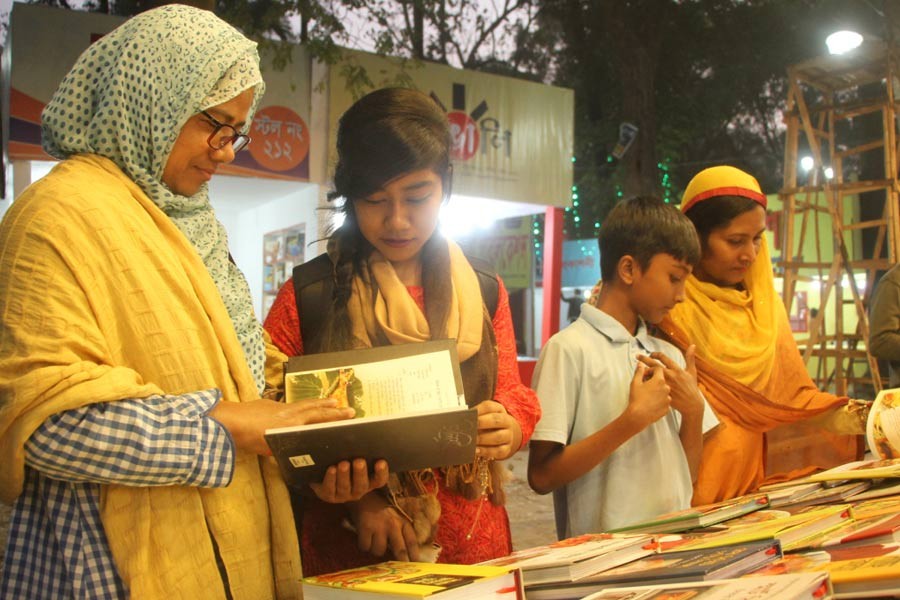The first week of the month-long Amar Ekushey Grantha Mela has drawn a moderate crowd. Publishers participating in the fair with new titles besides their already published books are expecting better sales in the weeks ahead. Bookstalls have been spread over two venues - the Bangla Academy premise and the Suhrawardy Udyan right across the road. The venue generally attracts large crowds on weekends and of course on February 21 every year.
The large crowd is, however, not necessarily a crowd of book purchasers. A big portion of them are visitors only who do not buy a single book from the fair. What deters them to purchase books is a matter of scrutiny.
High prices of books coupled with lack of quality titles generally pointed out as two main reasons. A good number of book purchasers have to cut their budget due to mismatch of high price and low income. Some others don't find preferred books.
Many also argue that the emergence and spread of digital devices becomes a big barrier to paper books and reading habit. It is not entirely true as e-book device like Kindle is contributing to develop and maintain reading in a different manner.
Beyond all these, cultural orientation plays a critical role to develop the habit of book collection and book purchase. Many of the visitors are ready to spend a good amount of money to enjoy good snacks and there is nothing wrong in it. But they become shy of purchasing a book! As a result, the overall sale in book fair is always bearish when compare with crowd.
Again, this is not a big picture. Some leading publishers have always do good business thanks to their quality works. A few even go further due to their advantage in advertisements and publicities. The theory of economies of scale works here! Small publishers have to struggle for their survival as they can't compete with bigger ones. To survive, they publish books with finance from writers. Every year, a number of young and occasional writers pay full costs of their books to different publishers. The non-professional practice contributes to increase the number of new titles though most fail to attract readers.
While readers' interests are diverse, most of the publishers don't want to acknowledge the fact. Rather they want to make their presence in the book fair by publishing books without professional editing. Some even reprints classics and good old books. Their main target is to sell books to the government funded library projects. In fact, a good number of publishing houses rely on the government purchase and so hectically lobby for it.
Nevertheless, a number of new elements have been included in the Ekusehy book fair for the last few years to attract readers especially children. This is a right step as traditional approach of book fair is eroding gradually.
Lack of adequate public transport and chaos in roads also discourage many book lovers to pay a visit to the fair and collect books. For them, alternatives like online purchase and delivery have also been gaining ground. Some publishers are also experimenting with new ideas and get some good feedback. For instance, pop-up of books for children is gaining popularity slowly. A few publishers are also trying to publish e-books in Bengali. All these development indicate that efforts are there to reduce the mismatch between readers and supply of books.


